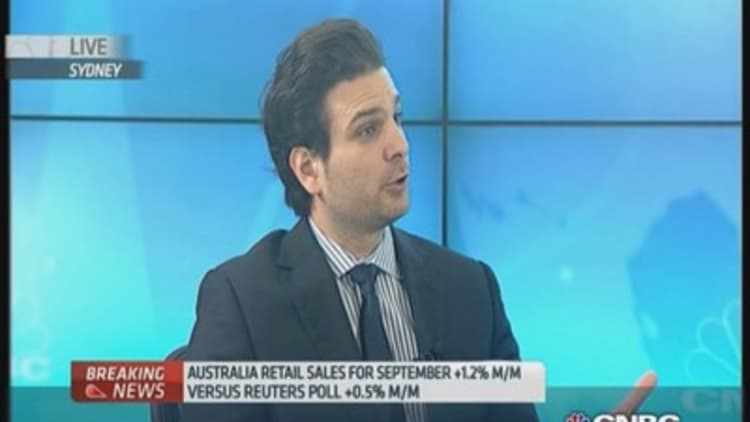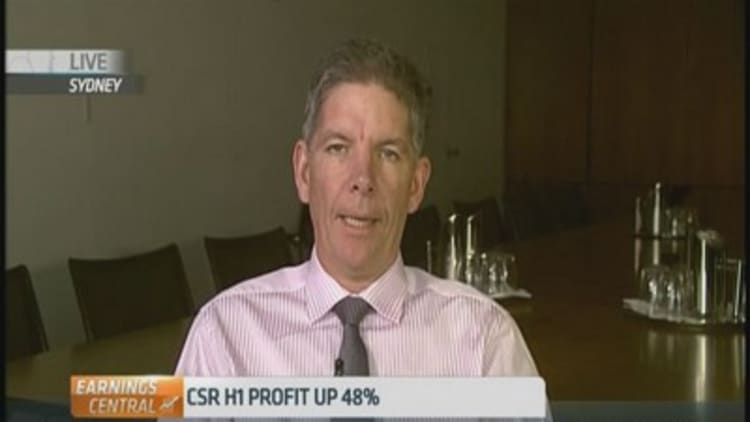A spate of Australian economic data this week suggests that the country is headed towards a dismal Christmas retail period.
Annual wage growth for the third-quarter remained at a 15-year low of 2.6 percent, unchanged since the final quarter of 2013. Separately, a Melbourne Institute and Westpac Bank survey showed consumer confidence slumped over 12 percent on year in November, with pessimists exceeding optimists for the ninth straight month. The November data are read as an early indication on what to expect during the Christmas shopping season.
Read MoreAustralia bears sharpen their claws
"Australian retailers should brace for another disappointing Christmas period as households are worried about future conditions and choosing to hold back spending. Weak employment and income growth are not conducive to higher retail trade," Katrina Ell, economist at Moody's Analytics, told CNBC.

Will sales really disappoint?
In the Melbourne-Westpac survey, an index measuring whether it's a good time to buy a major household item fell 13 percent on year.
In a further blow, 38 percent of consumers indicated that they expect to spend less this Christmas, while 50 percent were unchanged, the first indication that the upcoming holiday retail period will be weak, said Moody's Ell.
Read MoreAustralia pleased with progress on China free trade pact
"The combination of poor wages growth and consumer confidence is clearly not positive for retail sales going into the Christmas shopping season," said Shane Oliver, head of investment strategy and chief economist at AMP Capital. However, he noted that both indicators have been subdued for a while and haven't stopped retail sales growth rising this year.
"Annual retail sales growth is running at around 5.5-6 percent this year as low interest rates and rising wealth levels are clearly offsetting the negative impact flowing from low wages growth and confidence. Hopefully this will remain the case," he said.
Retailers hoping that consumers may turn to debt to fuel purchases in the lead-up to Christmas may be disappointed against the backdrop of low wage growth, Goldman Sachs said in a note. September saw a large fall in personal lending finance commitments, down 5.5 on year.

What's behind the weakness?
Consumer sentiment is declining due to adverse tax changes for households and concerns about job security as the unemployment rate continues to grind higher, Goldman said.
Read MoreAustralia jobs bounce, but not enough to allay fears
As part of the government's federal budget, a deficit levy of 2 percent for earners above $180,000 was introduced in July. Meanwhile, the country's official jobless rate rose to a 12-year high of 6.2 percent in October, from 6 percent previously.
"Ongoing weak consumer sentiment is a real setback to the RBA's effort to talk-up animal spirits in the Australian economy," Goldman said, referring to Governor Stevens' request for businesses to invest in non-mining sectors earlier this year.
The data also reduces the potential benefits of current accommodative monetary policy settings, the bank added.
Read MoreAustralia to become top LNG exporter by 2018
"Our forecasts imbed a recovery in consumer spending over the remainder of the 2015 fiscal year, but Wednesday's reported weakness in wages, consumer sentiment, and lending finance commitments all highlight risks to this forecast and the non-mining recovery more broadly," the bank said.

